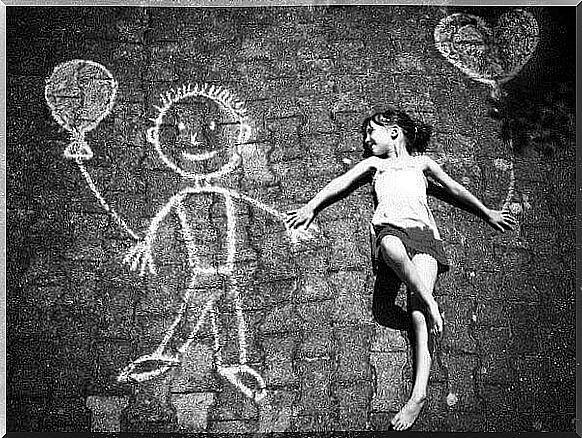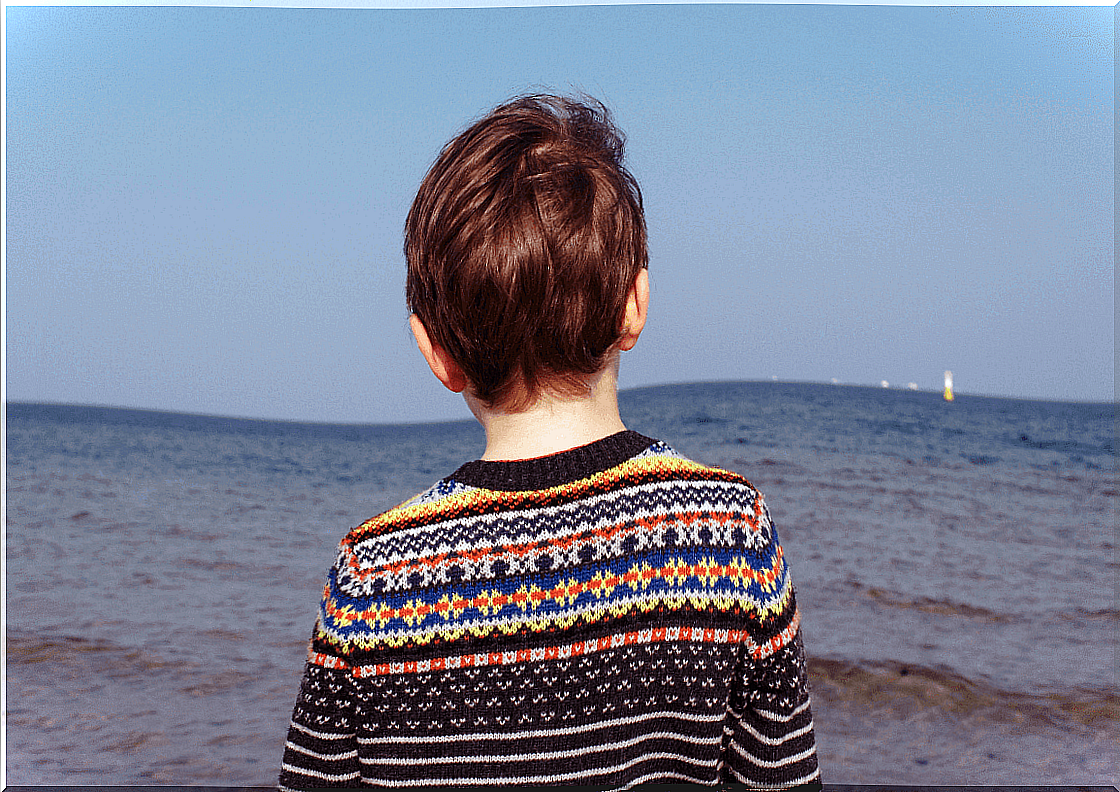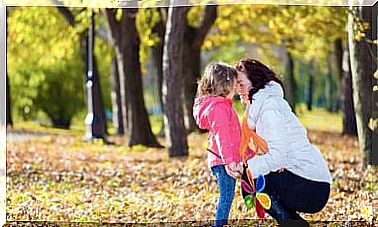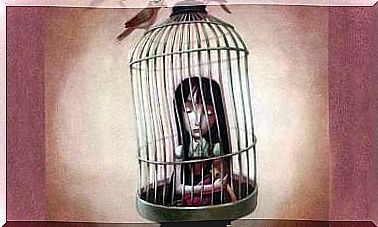Grief In Childhood: A Process That Requires Understanding

When it comes to grief, we rarely think of children. Indeed, infantile mourning involves losses. As adults, we must help them express the emotions that make them suffer, and it is certain that sometimes, we are not prepared to accompany them in this process. Thus, in this article, we are going to teach you some strategies that can allow you to support the bereavement of the little ones.
Fortunately, most children grieve without too many complications. But for this it is no less important to know different strategies to help them, thus understanding a little more the process of the infantile bereavement. In addition, how we go through the suffering arising from the loss of someone will determine the process of the children around us.
Most of the time, we associate grief with death. But the process encompasses other losses: loss of a job, loss of a loved one, of a pet, loss of a relationship… Grief is a process of emotional adaptation that follows a loss. . Without doubt, it is the death of a loved one or a member of our family that represents the most difficult situation that we can have to accept. Our ability to adapt to the new situation and our resilience will depend on our way of experiencing it in one way or another.
The death of a loved one causes suffering, sadness, emptiness, loneliness… and all these emotions must arise in order to be managed. Children also feel these emotions.

Children react to loss. And they do it in different ways. Depending on the moment of their development, their way of receiving the news, the reaction of adults and their own experiences. Adults are unprepared to deal with grieving, because usually we don’t talk about death or terminal illnesses, nor about abandonment or separation from parents to our children.
However, it is possible to learn new strategies; read the rest of this article, and you will discover some of them.
Support the child in the lack he may feel. When a person dies, there is a feeling of emptiness to deal with. It is necessary to face the fact that this person is no more, and that he will not come back. The child must also understand and accept that he will never see her again. And for that, the adult must also go through this acceptance.
Emotions such as sadness, depression, feeling empty, etc. are normal. Feeling suffering, even physical pain, is too. The child should feel these emotions. And accept them. This pain, you have to live it, not deny it or repress it, because otherwise, it could give rise to a depression which will have to be cured by therapy.
Start living without him / her, with this emptiness. Adopting your roles requires a change, and for children too. For example, keeping the accounts of the house like Mom did is difficult. Ultimately, this requires a change of circumstances and a re-definition of roles in order to continue to grow and not to stagnate.
Memories of a loved one are never lost. We cannot give up on this person, but find a suitable place for him in our heart, so that we can look behind us and talk about him without suffering. The child will not forget the deceased person, and will be able to look forward as well as the others, with his emptiness.

Certain behaviors that children may have in their grieving process are quite normal: sleep disturbance, intestinal problems, return to previous stages (sucking their thumb, urinating on them), feelings of guilt, periods of intense emotions. : anxiety, sadness, anguish, fear …
But there are other behaviors which themselves imply red flags: excessive fear of being alone, tendency to imitate excessively the deceased person, isolation and estrangement from friends, absence from play, regression in school results, behavioral problems or running away … These are just as many behaviors proving that the suffering is excessive.
Talking about the death of a loved one is difficult; feelings and emotions emerge that sometimes prevent us from putting words into the situation. But it is necessary to express our emotions, and it is easy to do so with stories.
Indeed, the stories which approach the subject of the death with the children are very useful and allow the parents and the professionals to accompany the children as well as to help them to understand and to adapt to the new situation. .
Depending on the child’s age, we can spend more time with him, encourage him to express his emotions, share ours with him, correct his inappropriate behavior, involve him in family activities, calm his fears. … If the symptoms persist or you don’t know what to do, you can always ask for help from a psychologist specializing in children. In fact, it is the best thing to do if the bereavement gets complicated.









